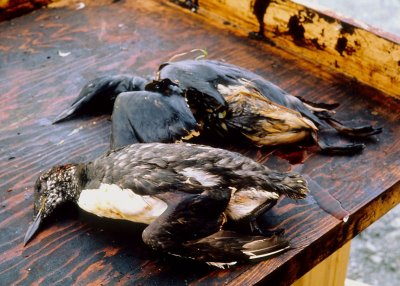Syncrude was convicted today of provincial and federal charges for the deaths of 1,600 ducks that got sucked into the slime in the company’s tar sands tailing pond in April 2008.
The company is now liable to fines of up to $800,000 and company officers face jail time, but a date for sentencing has yet to be set and no one believes that either level of government will throw the book at Canadian oil executives.
Syncrude had argued that it was operating its toxic waste dump with provincial and federal permits and that any conviction would render a continuation of the tar sands industry impossible. The judge wasn’t buying. He noted that Syncrude has crews dedicated to deterring birds from landing in its oily sludge, but observed that the crews only work Monday to Thursday. Apparently, the judge took as unreasonable Syncrude’s apparent optimism that migratory birds would take the weekend off.
Subscribe to our newsletter
Stay up to date with DeSmog news and alerts







